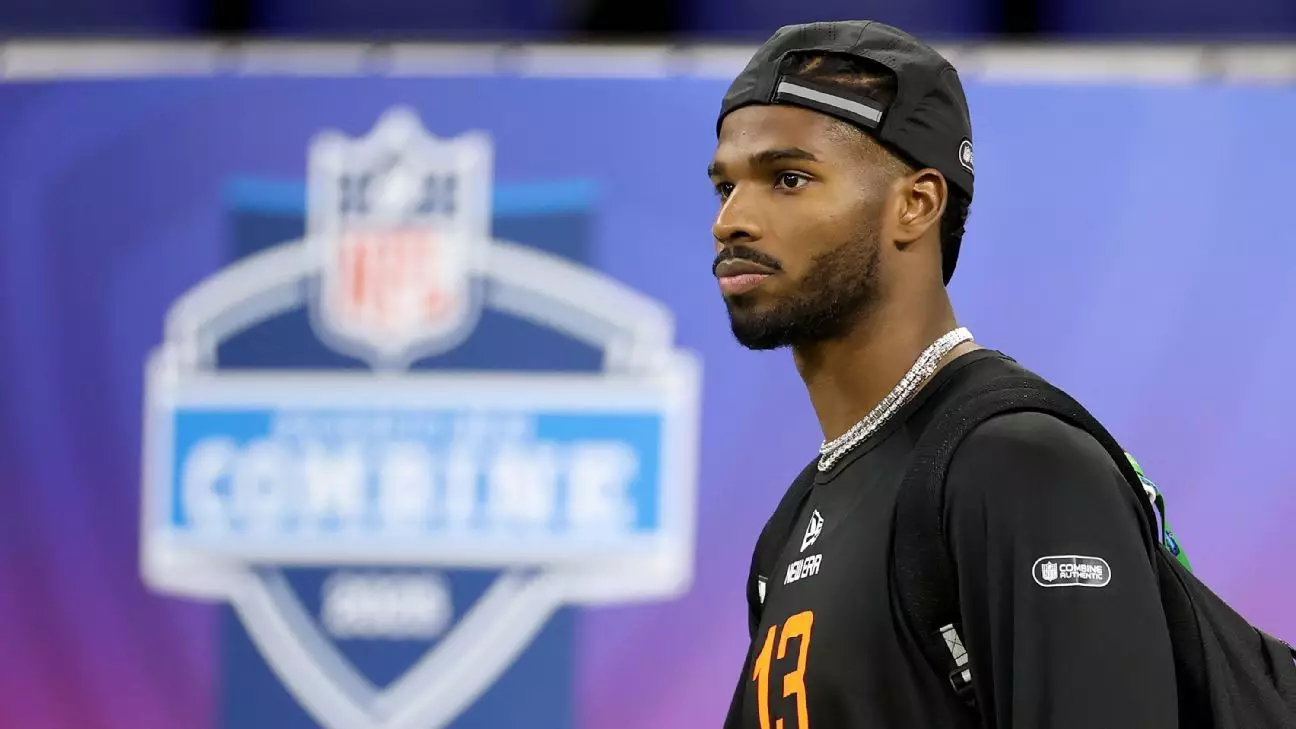In an age where privacy is paramount and respect for individuals should be non-negotiable, the recent incident involving Jax Ulbrich—son of Atlanta Falcons defensive coordinator Jeff Ulbrich—stands as a stark reminder of the consequences of carelessness. The incident transpired during one of the most significant moments in an athlete’s career: the NFL Draft. Young athletes, like Shedeur Sanders, eagerly await their futures to unfold, only to be subjected to childish pranks that reveal a troubling lack of maturity and consideration from others.
Jax Ulbrich’s acknowledgment of his actions—conducting a prank call by misusing Shedeur Sanders’ private number—paints a larger picture of the challenges young athletes face today. While he publicly apologized via Instagram, expressing embarrassment and regret, the fact remains that a breach of privacy can severely impact an individual’s well-being and the sanctity of significant life events. This scenario begs the question: how responsible must we be with information that does not belong to us?
The Fallout: Social Media’s Dual Edged Sword
The viral nature of social media is a double-edged sword, capable of amplifying joy while also exposing individuals to unwanted scrutiny and embarrassment. As the prank call to Sanders made its way through social media channels, it triggered a mix of reactions: some found comedy in the situation, while others raised concerns about the ethical responsibility of individuals, particularly those related to public figures.
Shedeur Sanders’ composed response after the incident showcased a level of maturity that often belies the age of many young athletes. He characterized the prank as “childish,” but also exhibited a commendable ability to not let it disrupt his focus—a necessary trait in the intense world of professional sports. Sanders’ reaction underscores a critical point about the influence of social media on the mental health of young athletes, who must constantly navigate public opinion and sometimes malicious criticism.
Moreover, the fact that other draft picks, like Tyler Warren and Chase Lundt, also received prank calls raises further concerns about a culture that trivializes such behavior. Is this a normalized ritual among draftees, who, instead of merely celebrating their achievements, find themselves under the haze of childish antics? Rather than rejoicing in their hard-earned success, emerging athletes must grapple with unexpected distractions that detract from their accomplishments.
The Atlanta Falcons’ Response: A Lesson in Accountability
While predictable, the Falcons’ response to the incident indicates the need for organizations within the NFL to prioritize respect and accountability. By formally apologizing to Sanders and pledging to review their protocols, the Falcons display an understanding of the situation’s gravity. But how deep does this understanding go? Will internal policies genuinely change to foster a culture that shields young talent from humiliating behaviors, or will this incident fade into the background, setting no precedents for the future?
The fact that the Falcons stated they would not take action against Jeff Ulbrich raises troubling questions about the implications for parental accountability. Shouldn’t parents, especially ones in influential positions, model decorum and ethics? Crafting a nurturing environment where young athletes feel safe and respected is essential. If the NFL claims to be committed to supporting the mental and emotional well-being of its players, these instances of misconduct serve as a litmus test for genuine progress.
Reclaiming Respect in a Public Arena
Instances like the prank call to Shedeur Sanders highlight a pressing societal issue: the urgent need for respect towards individuals, regardless of their status. Young athletes, often paraded under the public spotlight, deserve to celebrate their accomplishments without the palpable threat of ridicule lurking in the shadows. The true test lies in fostering an environment where pranks and breaches of privacy are not normalized behaviors, but rather, condemned and addressed.
As the NFL and its teams navigate this evolving landscape, they must be vigilant in not merely managing public relations but genuinely leading the charge toward a culture of respect and responsibility. The future of professional sports relies upon instilling values that emphasize dignity and the importance of celebrating each athlete’s journey—uninterrupted by unjust ridicule or inappropriate antics. Through concrete actions and intentional discussions, we can ensure that the beautiful game remains a space of joy rather than a platform for childish pranks.


Leave a Reply